A Renewable Total?
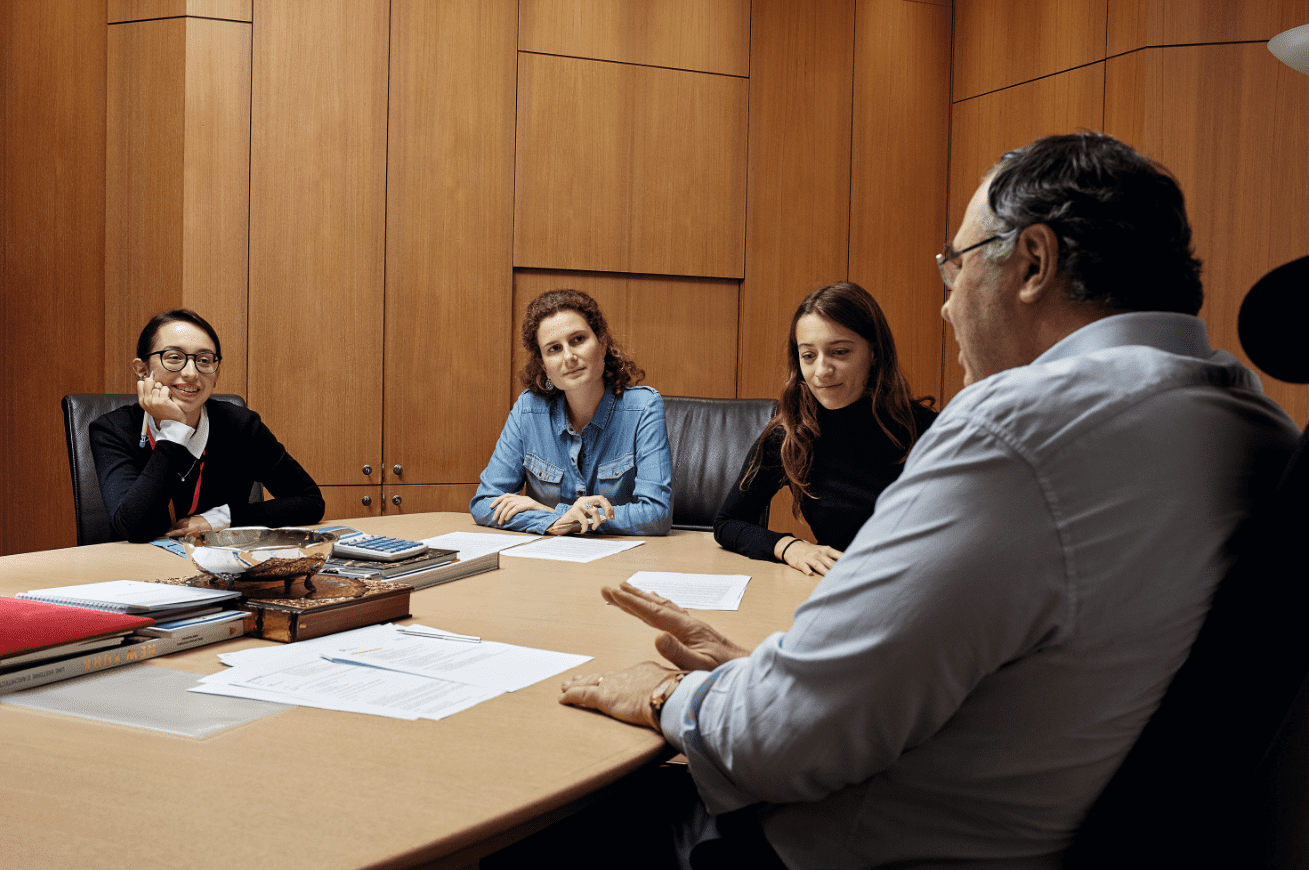

He’s the man who saved Total; it’s hardly an exaggeration to say so. In 2014, Patrick Pouyanné assumed the leadership of the oil and gas giant under tragic circumstances (the death of Christophe de Margerie in a plane crash). The same year, oil prices started to plummet. The new head of Total implemented a major cost-reduction plan. A shock treatment that got Total back on track. With his very direct, sometimes explosive style, the man nicknamed “Pougnax” for his pugnaciousness when he was a student at École Polytechnique quickly became known as an iconic leader of a CAC 40 enterprise. A force of nature, down to earth and skilled at commando tactics. Total’s recent acquisitions (Maersk Oil, Direct Energie and the African assets of Anadarko) demonstrate his ability to act quickly and seize opportunities.
On this November night, three students have come to the 45th floor of the Total tower in La Défense to interview the CEO of one of France’s biggest companies. “We’re in the middle of doing the budget. Patrick is wiped out,” the head of communications tells them just before the meeting. It’s 7:30 PM and Patrick Pouyanné is still visibly a bit on edge when Valentina, an MBA student, challenges him right away about Total’s carbon footprint. But he’s up for it and even seems more at ease as the discussion continues. He speaks quickly, and with a lot of facts. He knows his subject from A to Z. Interviewed by the students, this very busy executive devotes almost 90 minutes to talking with them about the oil industry, renewable energies and what goes on behind the scenes at the Total Group mega-ship. A rare and incredibly informative moment.
Climate change
Valentina Vignoli (MBA.20): According to a recent study published in the Guardian, Total is one of 20 global companies that, together, generate one-third of all carbon emissions. This study reports that Total has emitted 12 billion tons of carbon-dioxide equivalent since 1965.
Patrick Pouyanné: That’s not true. The carbon output of Total’s activities is about 50 million tons per year. The figure you’re referring to concerns emissions by clients using Total products. We’re responsible for our own emissions, the ones we can work on, but not those originating from clients’ use of our products. Our activities’ greenhouse-gas emissions have dropped by 25% since 2010. The group’s goal is to cut our emissions to less than 40 million tons by 2025. This is a major challenge, but we are heading in the right direction. And a variable part of the earnings of all top management, including me, will be linked to achieving this target.
Valentina : I understand, but what is Total doing about crucial climate-change issues?
Patrick Pouyanné: Our strategy focuses on reconciling two major United Nations objectives concerning sustainable development: to ensure energy access for all and to combat climate change. Our climate-change commitments revolve around four strategic poles. The first is natural gas. We believe that natural gas is a key factor in energy transition, specifically in replacing coal. The second is low-carbon electricity. The third is petroleum products. We will abandon expensive petroleum, reduce emissions at our plants, and promote economic use of petroleum as well as sustainable biofuels. Finally, the fourth priority is carbon neutrality. Total is developing activities that will contribute to this, such as providing energy-efficiency services to our clients and investing in natural carbon sources (forests, wet zones) and in CCUS (carbon capture, utilization and storage to recycle CO2).
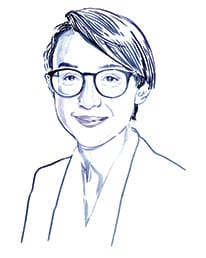
Valentina : Is Total doing enough, and responding quickly enough, to people’s climate concerns?
Patrick Pouyanné: It’s not as simple as that, you know. It’s too bad that public discussions are so often simplistic and too emotional. In fact, when it comes to energy, people have two mindsets: the consumer mindset, which wants access to cheap energy, and the ecologist mindset, which wants this energy to be green. In practice, it’s almost always the first one that dominates. The “yellow vest” movement is an example of this. Basically, we are facing a gigantic challenge: to find a way to provide affordable energy to a global population that continues to grow, while also reducing our carbon footprint. Changing the energy system means investing trillions of dollars. It’s going to take time.
Valentina : What do you think is the most effective thing we can do to fight climate change?
Patrick Pouyanné: The first thing we should do for the climate is to stop building coal-fueled power plants. People believe coal is a fuel source of the past, but in fact around one-third of the world’s energy is produced by coal, and investments in this sector continue to grow, even as scientists are warning us about how urgent the situation is. Climate change is not being driven by Europe but rather by India, Africa and Asia, where people want access to energy and coal is still the cheapest source of electricity. To be pragmatic, the most readily available alternative to coal is gas; the carbon emissions of gas are half those of coal.
Total’s strategy
Valentina : Why did you decide to raise the group’s dividends when you could invest massively in renewable energies?
Patrick Pouyanné: We’re doing both! That’s a rhetorical question. Putting stockholders and investments in opposition is a kind of either/or Manicheism. To give you an idea of the scope of all this, Total achieves around US$40 billion in added value every year, of which US$10 billion goes to employees in the form of salaries and other benefits, US$6 billion goes to governments in taxes, US$8 billion goes to stockholders in dividends, and US$16 billion is invested, of which almost US$2 billion is invested in low-carbon electricity. Some believe that isn’t enough. In this field, we are not limited by money but rather by the number of projects we’re capable of handling. Our goal is for low-carbon energies to represent 15% to 20% of our activities within 15 or 20 years. Total is transforming itself from “Big Oil” into “Big Energy”. But in the energy sector, getting results takes time and investments. We have developed a business model that lets us invest in renewable energies while remaining profitable. Our objective: 25 gigawatts of renewable-energy capacity by 2025. This is not nothing!
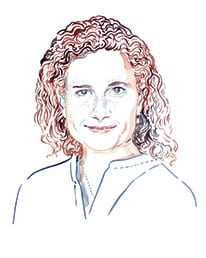
Gwendoline: In four years, following the drop in oil prices, the group’s break-even point was reduced from US$100 per barrel to around US$30 per barrel, thanks to drastic cost-cutting. Accomplishing this kind of transition is admirable, but it must have been extremely painful.
Patrick Pouyanné: It’s the survival instinct. In 2014, Total was hit by a sharp decline in oil prices and the death of my predecessor, Christophe de Margerie. The company felt itself to be in danger, and our employees took action. We were coming out of seven or eight exceptional years when oil prices had topped US$100 per barrel. The group was rich: why change? But, after 2014, we had to go back to the basics, to cutting costs. A low break-even point is important for a raw-materials-based company like Total, because that is something we can control. We can’t control oil prices, but for the break-even point, we can reduce it by manipulating three things: costs, investments and choice of assets. All our competitors, except Exxon-Mobil, laid off thousands of employees. When you take this route, it’s hard to ask your remaining salaried workers to settle for lower wages, because they will lose confidence in you. They will tell themselves that what they do doesn’t matter, because tomorrow they might be the ones to be let go. We announced at the start that we would not lay anyone off, but that we all had to roll up our sleeves. We needed €8 billion. We were obsessed: for two years, Total’s management talked only about one thing: costs. I didn’t send out any subtle messages. I had to keep the discussion basic and tough. You see, in a huge company like Total, the CEO is viewed as someone with enormous power, but in fact this power gets diluted considerably. If the message isn’t clear and simple, it doesn’t get through to people working in the field. I proposed an initial €1 billion cost-savings plan. Our employees achieved €1.5 billion, and it went on from there, exceeding my expectations. Our staff really wanted to get us out of this bind. At the end of two years of efforts, I realized that they were proud to be able to say, “We surpassed the targets”. The company has managed to save almost €5 billion since 2013. This was an amazing management experience. I was reassured to learn that – as this capacity to surmount difficulties proves – Total’s DNA is very powerful.
Energy markets

Clara Descos (H.22): Europe relies on energy imports, and around 40% of them are from Russia. What do you think of the European energy strategy?
To ensure reliable energy supplies and keep costs under control, there is only one solution: diversify suppliers and encourage competition. Europe needs more liquid natural gas (LNG) pipelines and import terminals. You know, it’s the Russians who want to build the Nord Stream 2 pipeline network that everyone is talking about [note: it will connect Russia and Germany by way of the Baltic Sea]. We’re not condemned to buy from the Russians. We could buy from the Algerians, or perhaps eventually from the Egyptians (if we build a pipeline under the Mediterranean), or we could supply ourselves with LNG shipped from Qatar or the United States. We have choices. At present, Russian gas is cheaper than American LNG, simply because it’s closer and easier to produce. We’re lucky in that the two main suppliers – Russia and the United States – are not likely to work together! But if Europe really wants to give up Russian gas, then European companies and individuals will have to accept paying more. I don’t think they are ready to do this. And Russia has been Europe’s most reliable supplier for 40 years.
Clara : Wouldn’t renewable energies be a good way to develop European production?
Patrick Pouyanné: Of course. The advantage with renewables is that you control your production. The disadvantage is costs. From this point of view, the Germans made a great gift to humanity in investing – after Fukushima – more than €100 billion in renewable-energy technologies that weren’t yet mature. Then there are the questions of location and acceptance. Not all Europeans are ready to have wind farms in their gardens. Personally, I think a field of windmills is beautiful. Regarding solar energy, our subsidiary Total Quadran, which is developing solar-energy farms, faces strong opposition from farmers, even though we rent fields to share profits with them. All this incites emotions and slows down projects.
Renewable energies
Clara: What renewables have the most potential to be profitable? Are there enough incentives for investing in renewables?
Patrick Pouyanné: I believe that our energy system will be based on renewable energies, natural gas, and energy storage using batteries or hydrogen. We need gas to ensure the continuity of the energy system for the next 30 years. As for incentives, not every country has the same policies; it’s very diverse. But what our group needs most now isn’t incentives; it’s people, men and women. We need to recruit more professionals. Then, it will take time to complete a renewable-energy project. In France, it takes two or three years of administrative hurdles before you can build a solar-energy power plant. Finally, there’s a lack of efficient means to store intermittent renewable energies.
Gwendoline: You have established a presence for Total throughout the electricity value chain. Why?
Patrick Pouyanné: At present, around 20% of the world’s energy is consumed in the form of electricity. I think that this percentage will double by 2050. This is why Total has gotten involved in the electricity sector. But we don’t want to be old-fashioned electricians. We don’t produce electricity using coal or petroleum, but rather renewables (solar and wind energy) and natural gas. Our strategy is to integrate ourselves into the full gas and electricity chain, including distributing gas and electricity to end users. With our acquisition of Lampiris and the launch of Total Spring, plus our purchase of Direct Energie, Total has become a key player in the sector. We sell electricity to more than 4 million French and Belgian clients. And we aim to double this figure by 2025 to achieve a 15% market share in these countries. And, in order to be able to sell green energy to our clients, we need to be able to produce it! So, we are building solar and wind power plants in Europe.
Gwendoline: You acquired the electricity provider Direct Energie. Aren’t you afraid of tarnishing its image? After all, Total has a bad reputation…
Patrick Pouyanné: The number of Direct Energie’s new clients has remained stable since we acquired it. Yes, we have an image problem, as we saw with the Olympics [note: the mayor of Paris refused to let Total be a sponsor of the 2024 Olympic Games]. What’s most important to us, however, is to show that we are transforming ourselves. It’s hard to fight against the stereotypical image of an “oil company”. “Yes, we have an image problem…” Gaz de France (GDF) renamed itself “Engie”. Should we have to change our name, too? We are proud of our brand and our history. But we need to communicate more. We now have solar and wind power plants, we produce many gigawatts of renewable energy, and we have become a top electricity supplier. Thanks to Direct Energie, we have fundamentally changed our connection with consumers. Three or four million French clients buy their electricity from Total. That is giving them a new perspective on our brand. You know, French people only see Total’s service stations, not its LNG plants, LNG tankers and oil platforms. For them, Total means gas stations and I am the head gas-station attendant! Changing our relationship with French consumers will require another kind of connection, which is what we are doing with Total Direct Energie.
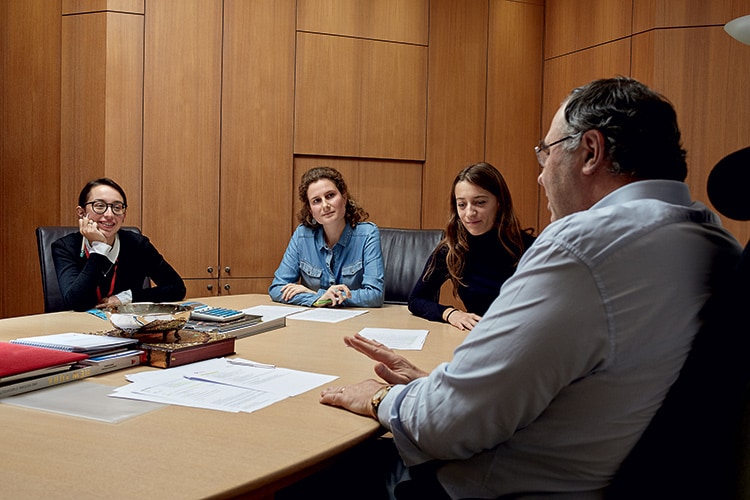
Gwendoline: Total presents itself as the “responsible energy leader”. However, in 2017, you inaugurated, along with Vladimir Putin, the Yamal LNG terminal in far northern Russia. The Arctic contains a third of global hydrocarbon reserves, but it is a very fragile environment. How does Total justify its involvement in such a project, given its claim of being “responsible”?
Patrick Pouyanné: First of all, it’s gas, not oil. We refuse to engage in oil drilling in the Arctic in order to avoid the risks of pollution and oil spills. Then, we did preliminary studies to make sure that the permafrost would be protected. Yamal LNG is located outside the Arctic Circle, in an undeveloped area that is isolated and frozen seven to nine months out of the year. In winter, temperatures can drop to minus 50 C. To protect the permafrost, the plant was built on 65,000 pillars. This was unprecedented, given the size of the installations and the amount of weight that had to be supported. In addition to these pillars, we installed 28,000 refrigeration poles to make sure the permafrost stayed frozen in spite of heat transfer from the plant’s operations. So, to answer your question, producing gas in Siberia is not a problem for us. If Total doesn’t do this project, others will, in conditions that might be less environmentally friendly. I should add that this is one of the most exciting projects our company has ever tackled. We built an absolutely extraordinary plant, a 21st century “cathedral”, in the middle of nowhere.
Career and personality
Valentina: We know that oil prices plummeted a few months after you took on the leadership of Total. Did this have an impact on your leadership style?
Patrick Pouyanné: I don’t know whether my management style evolved. It takes time to change! That’s not a simple question. People have written everything about me. Read the articles and you will know it all! [laughter]
Valentina: Would you say that circumstances have forced you to evolve?
Patrick Pouyanné: When you become the head of an organization like Total, you know that the Board of Directors has picked you for your positive attributes, not for your faults. No one is perfect and I think that we must build on our strengths rather than try to fix our imperfections. I certainly have confidence, courage and an ability to lead.
“I think that we make progress by taking on difficult issues.”
To be number one in a group like Total is nothing like being next in power or the next after that. You find yourself to be alone. Everyone is watching you, and you are no longer normal in their eyes. It took me six months to realize that my colleagues no longer felt the same way about me as they had before. I had become the person who said “yes” or “no”. Their view of me had changed. When you have a job like this, everyone is observing you and interpreting your actions. You must have extremely high standards regarding your own behavior. Of course I have evolved in five years. When I say “I don’t agree”, the walls sometimes shake. I realize this. I believe in values like hard work and courage, and I detest amateurism and bad faith. Just after I became CEO, I had to launch this vast cost-cutting program. It was a shock treatment. I had to make our employees face reality. I think that we make progress by taking on difficult issues rather than trying to hide them. So there you are; that’s my leadership style! Result: they have exceeded my expectations and the company is doing very well!
Valentina: Are you sometimes compared to your predecessors?
Patrick Pouyanné: I am very different from Christophe de Margerie, and it would have been a great mistake to have tried to imitate him. I believe in authenticity. My job is not to be liked; it’s to take the company in a direction in such a way that employees are proud to come along. You know, each time someone publishes an interview of me, our employees read it. I represent Total. And I think I will incarnate the company best if I am authentic. The media coverage that the CEO of Total gets was a big surprise to me. My comments become AFP dispatches. I’ll never forget an interview I did at 7:30 AM on RTL [note: April 2015], during the dispute between Carlos Ghosn and Bercy concerning the government’s participation in Renault. I spoke into the microphone “The government’s intervention as a shareholder should be reconsidered.” My comment appeared in La Une du Monde the following day. That’s when I realized that I was now part of another world.
Clara: You have been praised for your ability to be flexible. You surround yourself with a small committee rather than an army of consultants. Isn’t there a risk that the head of the company will have too much power?
Patrick Pouyanné: Total is a huge enterprise governed by processes and a very particular management structure that I inherited from my predecessors. It’s the group’s spine. I’m spending hours on budgets right now. Our decision-making procedure was inherited from Serge Tchuruk (1990-1995), who bequeathed it to Thierry Desmarest (1995-2007), who passed it along to Christophe de Margerie (2007-2014). It has not changed much at all. A big company needs its rituals and I’m one of the guardians of these rituals. Young graduates who join us are often surprised by how many procedures we have. But at the same time, we can and we must be agile! Sometimes we function in commando mode, even at the highest levels. That’s what we did when we acquired Mersk Oil, Direct Energie and the African assets of Andarko. Everyone was taken aback by this last action. Agility can be practiced at all levels. In a big group, there’s a risk of becoming stiff. Such groups have become economic powerhouses that stir the emotions and which governments try to control through increasingly stringent measures designed to force the groups to conform. Employees can come to believe that compliance is more important than action. I never stop telling them, “The most important, is to do business, to be active! You are free, use your imaginations, be creative.” I believe that a boss shouldn’t just ensure order; he should also create disorder…
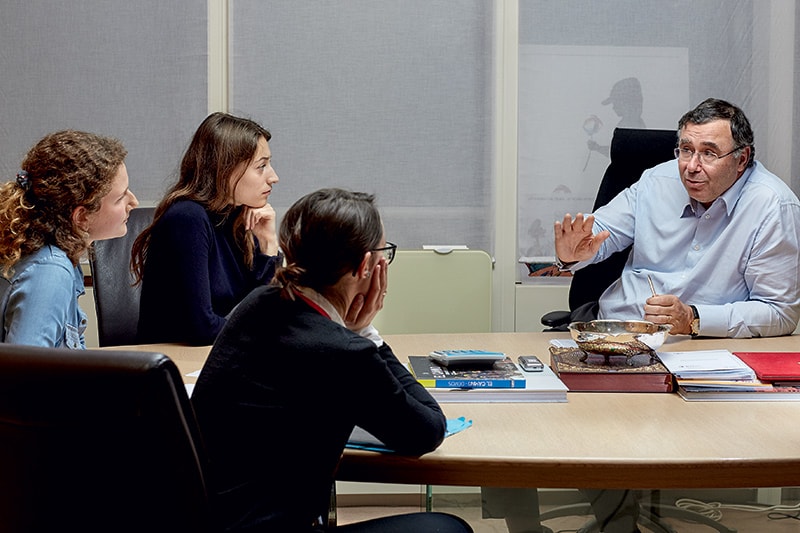
Gwendoline: You studied at École Polytechnique. The Student Manifesto for an Ecological Awakening was created by Polytechnique students and now has over 30,000 signatures. If you were a student at “X” today, would you sign the Manifesto?
Patrick Pouyanné: Absolutely. But you know that I am on the administrative board of “X” and a patron, so I went there to speak with these students. We had a debate. I told them that they had two choices: boycott Total, or join the company and contribute to a strategy to develop an energy mix that produces as little carbon emissions as possible. I accept both choices. I understand the ecological ideal, which is completely legitimate, but an alarmist outcry is not enough. And slogans like “stop fossil fuels” won’t work. What makes me hopeful, on the other hand, is that these younger generations seem to have a true collective awareness. We must take that into account. We companies must explain what we do. The problem these days is that we react emotionally. It’s difficult to fight that. We need to make our debates more rational.
Gwendoline: The Manifesto demands that students refuse to work for companies like Total…
Patrick Pouyanné: Do you really think that a boycott is a good thing?
Gwendoline: But what do you say to these young people to encourage them to come to work for Total?
Patrick Pouyanné: First of all, we don’t have a recruitment problem. Next, what I tell them is that Total has committed itself to reducing the carbon footprint of its products. We are investing in new energies. These young graduates can help us evolve from the inside. We have a strategy and significant financial means. A student with a Master’s in sustainable development could join our company in a role that fits his training, and then want to build solar farms, install charge points for electric cars in our service stations, or move to Mozambique to work on LNG projects. A company like ours offers all kinds of adventures. A question young people ask themselves is “What will I accomplish and will my company make me feel that I am useful to society?” This is a question that could not be more valid.
Published by Thomas Lestavel

